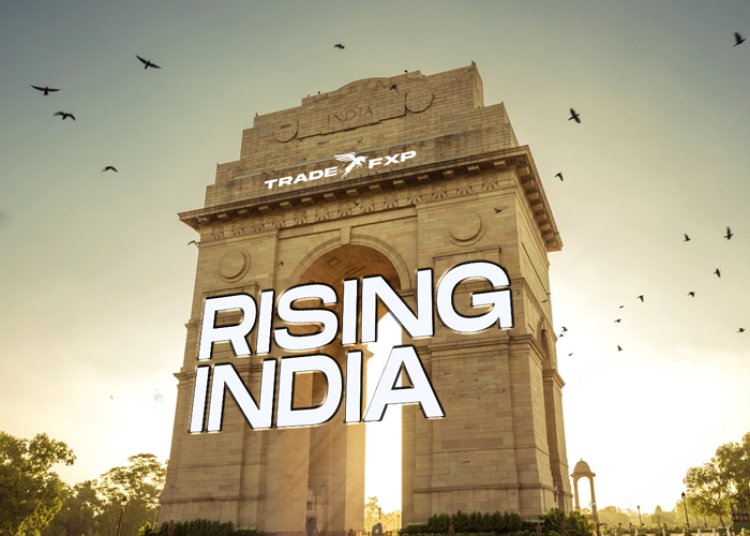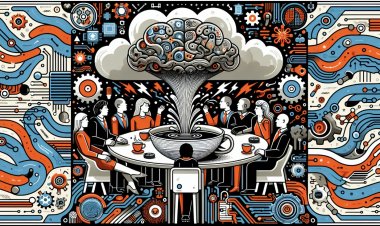Rising India - The new beacon of light
Explore the growth story of Rising India as it emerges as a global powerhouse. Uncover the economic, political, and social changes that fuel this ascent.

Rising India
India is one of the fastest-growing economies. India has the sixth-largest Economy, estimated at $2.7 trillion. Agriculture, industry, and services are all growing, which is promising. India has progressed in infrastructure, technology, and international investment. This is why many people are optimistic about India's economy in the future.
Service industries make up over half of India's economy, making them vital to its growth. The service sector includes IT, banking, finance, and tourism. India IT industry's fast rise has boosted its economy. The IT industry accounts for 8% of India's GDP and boosts economic growth. India's development has also benefited from its billion-plus population. As India's middle class is growing, businesses can find several chances there.
FDI has boosted India's economy. Several global firms operate in India due to decades of success in attracting international investment. India is attracting foreign direct investment due to government efforts (FDI). This boosted the car, infrastructure, real estate, and other industries.
India's economic outlook is positive. Due to the government's initiatives to improve infrastructure, encourage new business startups, and encourage innovation, corporations have new opportunities. India's young, skilled, and educated population will help it led the global economy.
Fast growth, low inflation, greater foreign investment, and a growing middle class are helping the Indian economy. In 2019, its GDP will exceed $2.9 trillion, up from 7.5% in 2018. India's middle class is expected to grow quickly in the next years, boosting the economy.
Even Poverty, unemployment, lack of infrastructure, and a labor shortage plague the Indian economy. The government is addressing these concerns with economic projects like Made in India, Digital India, and Skill India. These policies are expected to boost the economy, while their full effects are still unknown.
India's economy is optimistic. The country's economic success is typically attributed to its large, diverse, and well-trained workforce. The economy is predicted to grow as the government improves infrastructure and lowers obstacles to entry for local and foreign enterprises. To be competitive in the global economy, India must keep investing in education and skill development, especially in rural areas.
Many things may boost India's economy, which has been growing quickly for years. Recent IT investments have been substantial. India's growing infrastructure and internet connection are luring more enterprises, which is projected to continue.
Another developing Indian sector is healthcare. The growing interest in health concerns is linked to the expanding number of patients. The government is aware of this issue and plans to finance medical research and extend health care. As a result, there is excitement about India's healthcare future, and I expect tremendous growth in this industry over the next few years.
Renewable energy is India's third growth sector. As the government moves away from fossil fuels and towards a more sustainable future, renewable energy infrastructure investments have increased. Solar panels and wind turbines are created and used nationwide. This tendency will continue as long as the government funds renewable energy research. As India modernizes and develops, its room for improvement will grow.
India's economy is hampered by income inequality. India's improving level of life hasn't eliminated poverty. Some of the nation's poorest districts are desperate. Insufficient inclusive policies and services for disadvantaged people worsen the situation. This suggests a tiny group controls most financial resources.
India's weak infrastructure also hinders economic growth. Despite plans and projects to improve transportation, communication, and power, the country lags. Inadequate physical infrastructure boosts business transaction costs and makes it harder for people to travel, which slows economic growth. If a country's infrastructure is poor, visitors and investors would stay away, hurting the economy and job market.
India's rules slow economic growth. The nation's laws are intricate and time-consuming. This may cause problems for domestic and foreign enterprises. Excessive restrictions raise corporate costs, deter investment, and hurt the economy. Due to insufficient legislation and enforcement, systemic corruption prevails in many economic areas. This stunts growth.
India's economy faces several difficulties that might slow its growth. Inclusive policies, infrastructural investment, and regulatory reform are necessary for economic growth to benefit all populations. India will emerge worldwide if it solves these problems.
India has made progress in information technology, healthcare, education, and finance. If this growth is to continue, authorities and other stakeholders must confront the problems of a fast-growing economy. The nation's long-term prosperity is a priority.
India's economic prosperity depends on innovation. Long-term economic growth requires innovation. Innovating improves efficiency, production, and usefulness. Technological, business and policymaking sectors can innovate. India's IT industry has shown its technological capability. Governments must also encourage innovation in other areas.
Second, invest in India's people. A nation must invest in its people to succeed. Investing in human capital means redesigning education, giving job-specific training, and encouraging the next generation to take chances and innovate. India needs a more open education system to maximize its people resources. Vocational training can help people adjust to today's economy. Finally, initiatives and policies may help young people start or improve their businesses.
India needs a business-friendly environment. Entrepreneurs innovate, create new enterprises, and grow economies. India needs measures to help current enterprises grow to encourage entrepreneurship. Policymakers need less red tape and easier access to money from banks and venture capitalists. India can encourage entrepreneurship by rewarding risk-taking and creativity.
India's economic growth plan includes new methodologies, human resource investments, and entrepreneurship. The government, politicians, and stakeholders must work together to promote education, innovation, and entrepreneurship for the nation. This would safeguard India's economic future and improve its residents' lives.
To read more interesting articles CLICK HERE
Why do you need to be with TradeFxP? CLICK HERE
To join our Hunter AutoBot Trading Program CLICK HERE
All About TradeFxP's Hunter Ai EA Autobot CLICK HERE



 admin
admin 










